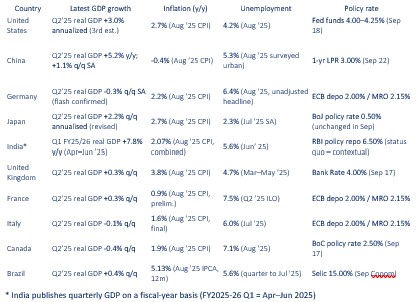An atomised future awaits
- Mark Williams

- Nov 2, 2020
- 4 min read
A tumultuous week in the Anglo Saxon economies distracts from longer-term challenges
A tumultuous week is beginning in the Anglo-Saxon economies. The ramifications of this US election will be felt for years. It is not so much that Trump is pro-business or that Biden is anti-oil. Those labels are too simplistic. The tragedy is that a win for either man will do nothing to dampen the flames of the culture wars that engulf the US, endangering its constitution and democratic process.
As the office of the Presidency is undermined by its current incumbent, individual states have started to go their own way. Already California and around a dozen other states are progressing with environmental policies that will not change whatever the federal government does or whatever a president says. Even as the Trump administration has relaxed fuel economy and air quality standards, individual states have ratcheted them tighter, with the support in many cases of Trump voters.
Meanwhile, the incoherent federal response to Covid-19 infection control creates a public health policy vacuum into which certain states have been willing or forced to step. For instance, the Pennsylvanian Covid Alert telephone app launched in September has been expanded to cover Delaware, New Jersey and New York.
What next? If, as he has trailed, a second-term Trump doubles down on US trade policy to ‘punish’ companies that manufacture overseas, will the littoral states create their own trade policies to support their own economies? Will that leave the flyover states to mourn the inevitable loss of their mining and manufacturing while consoling themselves with social polices that they favour?
The long-term consequence of this presidential election is a growing difference in policies between individual states, the grouping of states with similar world-views, and a greater policy distance between states and the federal government. I’m not predicting anything as outlandish as a second civil war (as some internet loons have), or the break-up of the US itself, but a less unified US with a weaker international role and lesser ability to drive global affairs to its advantage.
In the UK, the government has made a policy U-Turn for the Nth time this year as the country heads for a lockdown that will drive it into back into recession just in time for Brexit. If the government had spent half as much on test, trace and quarantine as it has on furloughs and the economic consequences of its inaction, the nation would not be in a state in which the North, which ‘lent’ the Conservative party its vote to ‘get Brexit done’ is in open revolt against Westminster, with the connivance of its political leaders and in some places members of the governing party. Wales is shutting its border with England for the first time since the fourteenth century. Independence support in Scotland is running at up to 58 per cent. From January, Northern Ireland will be inside the EU border with the rest of the UK while truckers will need a passport to enter Kent (the south-east corner of England) when they plan to leave it by exiting to France.
Meanwhile UK businesses are told by the government, which has still not finalised the terms of the UK’s departure from the EU, that they have not done enough to prepare. The one outlier is the airport operating companies, who are using the pandemic as cover to release with minimal oversight a number of expansion plans based on out-of-date demand forecasts, unless they anticipate a growing number of one-way ticket purchases from departing expats and resettling Remainers. Investor confidence is likely to tumble as a Winter of Discontent develops.
Across Europe and North America, the economic, social and political consequences of Covid are becoming clear. The political class remains unwilling to hear it, but a virus is demonstrating that the structure of society (and therefore of the economy) is too fragile and too atomised for any kind of coherent response to be effectively organised, let along implemented. The public health debate has moved onto one about civil liberty, but also about the status of borders and freedom of movement of people. But I think this is the wrong debate, or the debaters are picking on the wrong targets. Better to think about how to make societies more resilient and who plays what part in that process, from individuals to governments.
Amid all this, internationally trading companies do their best to focus on what is achievable and manageable, though in many cases long-term plans have to be set aside while short-term fire-fights consume management resources. For so many of us, the plan is now just to get through 2020 in one piece and see what the new year brings.
I’m confident in one prediction about 2021: there will be further disintegration of the ‘international rules-based order.’ This will lead to greater regionalism, bilateralism, and isolationism. Globalisation will go further into reverse.
We are experiencing these effects in shipping. There’s no current technical, universal solution to the challenges set by the IMO on reducing shipping’s carbon emissions. But instead of state and international level actors drawing together to find ways to achieve the mandated emission cuts, there is a split between those who think the IMO doesn’t go far enough and those who think it can’t be done and therefore they will do nothing to contribute.
The consequences is proposals like those from Europe for a regional response or the refusal of some flag states to engage at all. China’s president Xi has promised that China will decarbonise by 2060 but, as my recent survey of maritime decarbonisation policy for the website ship.energy shows, the world’s most important shipping country is doing little to advance the decarbonisation agenda.
Trump:Biden and Brexit are symptoms, not causes, of the political situation. But for shipping and trade, the root cause is irrelevant. The effects however are going to be very relevant.



Comments